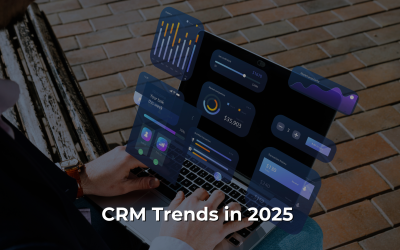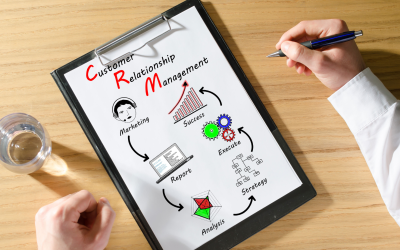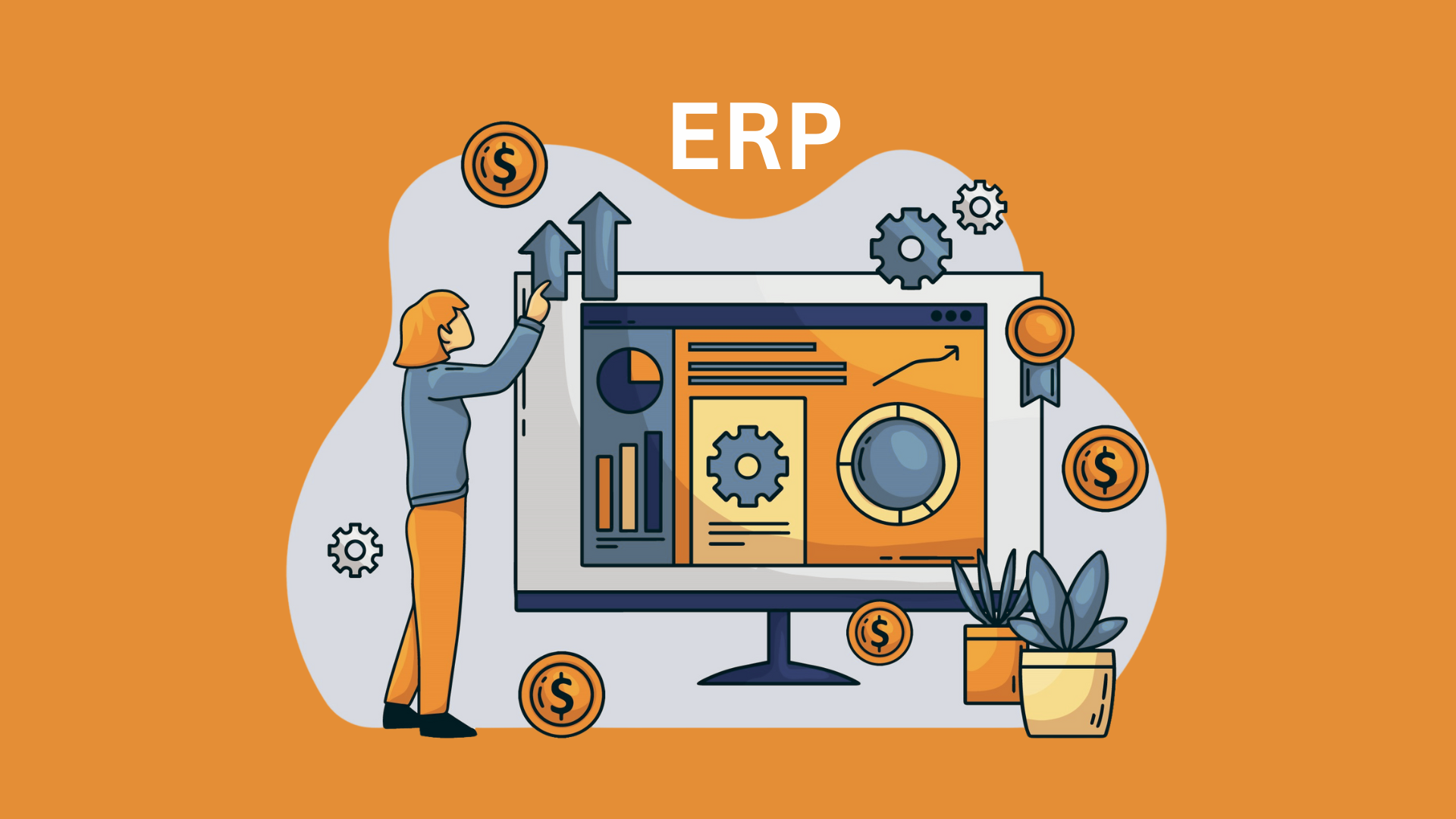ERP VS CRM: Managing customer connections and maximizing company resources are essential for success in today’s fast-paced business environment. Businesses frequently use Customer Relationship Management (CRM) and Enterprise Resource Planning (ERP) solutions to achieve these objectives. Both business software programs connect data from several departments and simplify difficult, manual processes. And, while they share certain benefits and features, they are not interchangeable; each serves a specific role.
What is ERP?
Enterprise resource planning (ERP) is a form of business software that controls, automates, and links day-to-day back-office business activities such as accounting, procurement, project management, supply chain management, risk management, and human resources. Enterprise performance management software, which aids in planning, budgeting, forecasting, and reporting an organization’s financial outcomes, may also be a part of an ERP package.
Workflows can be improved by combining key business activities on a single technological platform. ERP systems promote the flow of relevant data between departments, prevent data duplication, and offer data integrity by keeping data in a central location a single source of truth by gathering an organization’s common transactional data from many sources.
What is CRM?
Customer relationship management (CRM) is business software that automates how customers engage with your company. It frequently forms a portion of a broader collection of customer experience (CX) software programs, which may also comprise marketing, advertising, e-commerce, and customer support applications. A CRM system keeps track of and saves all client information, including service requests, proposals, and conversations with salespeople.
To ensure that the contact information is accurate and up to date, several CRM solutions add to those customer records using external data sources. So that consumers can better understand what happened at each touchpoint, all of this customer data may subsequently be distributed throughout an organization. In addition to using artificial intelligence (AI) to analyze a customer’s past and propose suggested next steps for sales, the best CRM platforms do so as well.
ERP VS CRM: Key Differences
A business’s success depends on selecting the appropriate system or systems. CRM and ERP can help companies enhance their operations, but some key distinctions between them must be considered. Business executives who are choosing the best system(s) for their purposes can make educated decisions by being aware of these differences.
So let’s get into knowing the differences:
1. Database:
ERP: An ERP creates a single source of data truth by gathering information from several business systems.
CRM: To build a full picture of their preferences, wants, interactions, and purchase history, a CRM gathers data on leads, prospects, and customers.
2. Automation:
ERP: Businesses may use ERP automation to automate repetitive operations, such as automatic setting up reports and payment processing.
CRM: CRM automation lets users better manage the customer journey with features like automated lead scoring and the routing of customer support issues to the appropriate staff.
3. Integrations:
ERP: In ERP, Software like payroll, accounting, and CRMs can be integrated by businesses to offer a cross-functional perspective of the business’ performance.
CRM: Businesses may combine CRMs with technologies like e-commerce platforms and marketing automation systems that help them manage the customer experience or the sales funnel.
4. Data Analysis:
ERP: An ERP may analyze data to forecast expected outcomes based on market and business circumstances and performance, assisting businesses in making proactive, more strategic decisions.
CRM: A CRM may analyze data to identify patterns and anticipated results, assisting businesses in making proactive and strategic decisions on the management of the sales cycle, marketing initiatives, and customer happiness.
5. Money Management:
ERP: Many times through automation, reporting, and data analysis, ERP systems‘ financial and accounting modules and integration possibilities assist businesses in managing and even forecasting revenue, costs, and resource requirements.
CRM: While CRMs do not concentrate on a company’s money management, many CRMs provide tools to assist businesses in making wise financial decisions, such as customer lifetime values (CLV), which forecast a customer’s expected future worth to the business.
6. Data Reporting and Analytics:
ERP: Resource planning, performance, and projections, including financing, are the main areas of reporting and analytics in ERP systems.
CRM: Sales, customer service, and marketing campaign success and trends are all covered by CRM reporting. For instance, it may show trends and predictions, consumer purchases, and sales income.
7. Supply Chain Management:
ERP: By consolidating operations onto a single dashboard for better team coordination and visibility and implementing automation to do away with the human element of repetitive supply chain management tasks like resource planning and invoicing, an ERP system can streamline supply chain management.
CRM: Supply chain managers can benefit from a CRM since it keeps track of customer purchase histories, forecasts client lifetime values, and provides a possible future of consumer demand. A CRM, however, cannot provide the same level of support for resource planning as an ERP system.
8. Production Management:
ERP: Monitoring and reporting are at the core of ERP system production management skills, which helps businesses get rid of inefficiencies that might hinder productivity. Additionally, it assists businesses in determining when to place orders for resources and where and when they must arrive to meet production demands and prevent unforeseen expenditures from arising from enough storage time before production.
CRM: Compared to an ERP, a CRM has fewer production management features, but it can provide insights into consumer trends that may help businesses determine the appropriate production rate required to meet demand.
9. Competitors Move:
ERP: Although an ERP system does not have competition analysis features, users may create this capacity through connections with a corporate CRM.
CRM: Numerous CRMs provide features for gathering data on rival businesses, such as how customers, prospects, or leads engage with them. Additionally, it may compile news on competitors and market circumstances.
10. Sales Cycle Management:
ERP: Numerous ERP platforms include CRM interfaces to assist user businesses in managing the sales cycle.
CRM: Clear pipeline reporting, sales forecasting, prospect analytics and profiles, e-commerce launch, and scaling tools, lead scoring, interaction reminders, transaction history tracking, customer lifetime values (CLV), predictive analysis capabilities, and tools to support sales reps in personalizing every customer or lead interaction are all features that CRMs offer.
Choose the Right Solution for your Business
Leaders need the necessary tools to adapt to the pressures faced by today’s companies and acquire a competitive advantage. After reading about the differences between CRM and ERP, you can now choose from the various solutions with better knowledge.
Customers, staff, and business owners all benefit from this. CRM and ERP systems help firms by consolidating, data on a single platform and providing a thorough look into all activities, helping to enhance customer retention, simplify accounting, boost sales, or better manage supply chain concerns.
Wrapping It Up:
Businesses aiming to simplify operations and enhance client connections must completely understand the key differences between CRM and ERP. ERP systems oversee all business-wide operations and resources, in contrast to CRM systems, which concentrate on managing client interactions and relationships. Each system has its advantages, which may boost departmental efficiency even further when combined.






